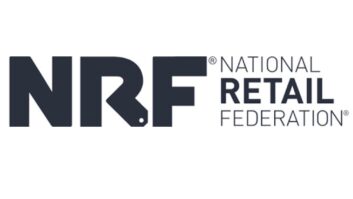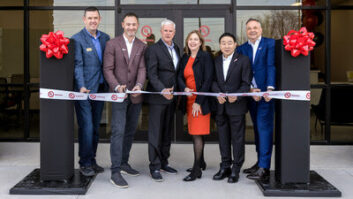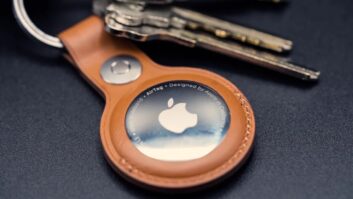The CEOs of Best Buy and Circuit City and the head of Target’s consumer electronics business each predicted tougher times ahead for CE retailing as shoppers feel the pinch of high energy costs and a weakening economy.
The cautionary outlook came during an International Retail Power Panel, part of International CES’s Industry Insiders series, moderated here by Consumer Electronics Association (CEA) president/CEO Gary Shapiro.
Also joining the discussion, albeit with much rosier outlooks thanks to their booming regional economies, were Vishesh Bhatia, group director of the electronics, engineering and technologies unit of Al Futtaim Group, the United Arab Emirates conglomerate, and Xiao Chen, chief executive of Gome, China’s largest retailer.
“We definitely can feel the effect of the economy on our growth rate,” acknowledged Best Buy’s Brad Anderson, who explained that the company’s substantial growth in 2007 did not come easy. “The year was more challenging than expected,” he noted.
Circuit City’s CEO Phil Schoonover was also apprehensive about the economy. “Consumers are just getting their first oil bills — we’re paying $3 a gallon in Massachusetts — and they’re concerned,” he said. Compounding their fears is the sub-prime mortgage dilemma and talk in the media of recession. In response, the chain is taking a “cautious approach to expenses, and will act prudently in the face of more difficult headwinds.” Schoonover also acknowledged his company’s own financial challenges, which he described as “trying to fix a plane while flying it,” although he assured the large contingent of investment analysts in the audience that Circuit City is “on the road to improved performance.”
And while Target’s customers are still buying big-ticket items, they’re being more selective about their purchases, observed Steve Eastman, the discounter’s consumer electronics VP/general merchandise manager. Eastman added that 2007 started off stronger than it finished, with the last few months of the year proving a harder sell.
The looming analog cutoff was another concern for the executives, who fear that many consumers may find themselves without over-the-air TV signals come February 2009. “This is one of the biggest risks facing the industry,” Anderson warned. “The number of converter boxes required and the impact on TV manufacturers to keep up with demand could put tremendous pressure on all of us within a very short window. I’m very nervous about the potential risk. We want a smooth experience for our customers, and the industry could be damaged if we don’t do a good job on the transition.”
Not all was doom and gloom, however. Schoonover described “extraordinary growth” in Circuit City’s online business, which is expected to reach $1 billion in sales this year, and robust gains in its Firedog services operation, which became a $300 million business within two years. On the product side, Target’s Eastman was enthusiastic about the gaming category, citing “a lot of innovation in interactive gaming,” and said that smaller, personal CE devices are “doing great in our stores.” Similarly, Anderson pointed to GPS as a growth category, and said he was “stunned” by the rate of growth of notebook computers.
Regarding the advanced DVD format war, both Anderson and Schoonover agreed that Warner’s decision to abandon HD DVD and back Blu-ray exclusively will help push the industry toward a single technology. “It’s time to get that solved,” said Anderson, while Schoonover declared that the studio’s move represented “significant progress.”
Eastman agreed that a single format is needed to serve as a catalyst for growth, but said that Target — whose stores sold Blu-ray exclusively over the holidays but have since resumed carrying both — is “by no means ready to declare a winner.”
The executives were equally adamant about what differentiates their respective chains in a crowded marketplace. Eastman said Target “is distinguished by convenience” thanks to a fresh food offering and expansive CE assortment that provides one-stop shopping for time-starved guests. Anderson said Best Buy studied its customers to determine what’s missing from their shopping experience, and now delivers a value proposition that they’re not getting elsewhere.
Schoonover said that creating a positive shopping experience is critical to differentiation since many retailers now sell the same products. “You’ve got to give them a reason to shop your store,” he said, “to make them feel good” about being there. For Circuit City, the components of that experience include the “ultra-convenience” of picking up online purchases in-store; encouraging customers to “linger, touch, compare and learn”; and to extend the experience through in-home installation.
He added that the Internet represents a “sea change” in the way people shop and an exciting opportunity to “build a value proposition that leverages” that preference. Indeed, some 70 percent of Circuit City’s big-ticket sales originate online, he said, and more than half of all online purchases are picked up in-store, which drives traffic and creates additional sales opportunities.
Looking ahead, Anderson believes that name brands will become less important to flat panel shoppers over the next three to five years amid a “surge” in value-oriented products, as witnessed by Best Buy’s rapid growth in private label. “Brands need better differentiation to compete,” he stated.
The other panelists disagreed. “Our guests value brands,” Eastman retorted. “We beefed up our top-tier brands and the customer has responded.” Schoonover argued that “Big brands matter when new technologies are introduced [because] they’re trusted.” He added that building a private label brand “is not cheap,” and questioned the long-term viability of value brands.
One point all three agreed on is that simplifying technology and making it understandable is critical for success. “The obstacles presented by confusion are what we hear from consumers again and again,” Anderson said.













